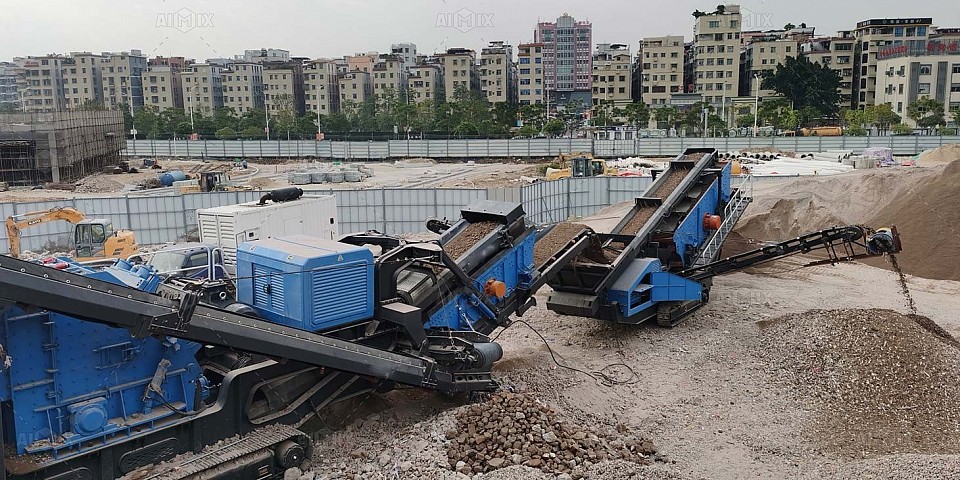Reasons For Choosing Mobile Crushing Plant To Deal With Construction Waste
Construction waste, an inevitable byproduct of urbanization, has become a critical issue for many cities worldwide. The debris from demolished buildings, roads, and infrastructure poses significant environmental and logistical challenges. Among the various solutions available, mobile crushing plants stand out as an innovative and efficient approach. Their adaptability, cost-effectiveness, and eco-friendly features make them a preferred choice for construction waste recycling.
Advantages of Mobile Crushing Plants for Construction Waste
Flexibility and portability are among the primary reasons for selecting mobile crushing plants. Unlike fixed crushing systems, these machines can be easily transported to the construction site. This eliminates the need for additional transportation of waste to off-site facilities, saving time and resources. Moreover, their compact design ensures they can operate in confined spaces, making them ideal for urban environments with limited access.
Another compelling factor is their cost-effectiveness. Mobile crushing plants enable on-site processing of construction waste, significantly reducing expenses associated with hauling and disposal. By converting waste materials such as concrete and bricks into usable aggregates, these plants create valuable resources for future projects. This dual-purpose functionality not only minimizes waste but also optimizes financial investments.
Environmental benefits further solidify their importance. Construction waste, if not managed properly, often ends up in landfills, contributing to pollution and space scarcity. Mobile crushing plants address this issue by promoting material recycling. These machines break down waste into smaller, reusable components, reducing the dependency on virgin raw materials and aligning with sustainable development goals. Additionally, their operations are designed to meet stringent environmental regulations, making them a responsible choice for contractors and developers.
Long-Term Impact on Construction and Urban Development
Mobile crushing plants play a pivotal role in fostering sustainability within the construction sector. By efficiently processing construction debris, they contribute to the circular economy. The recycled materials produced are frequently used in the creation of new infrastructure, reducing the need for quarrying and mining. This approach conserves natural resources and lowers the carbon footprint of construction activities.
The enhanced efficiency of material recycling also facilitates smarter urban development. With cities increasingly emphasizing eco-friendly practices, track crusher support efforts to manage waste more responsibly. They help reduce landfill dependency, ensuring that valuable land can be utilized for housing, green spaces, or other essential developments.
Furthermore, these plants symbolize innovation in urbanization. By transforming waste into resources, they pave the way for forward-thinking construction practices. Their deployment not only addresses immediate waste management needs but also sets a precedent for integrating sustainability into large-scale urban projects.
In conclusion, mobile crushing plants have revolutionized the approach to construction waste management. Their flexibility, cost-efficiency, and environmental benefits position them as indispensable tools for modern construction. By choosing these advanced systems, developers and contractors can align their operations with sustainable principles, creating a lasting positive impact on both urban landscapes and the environment.


